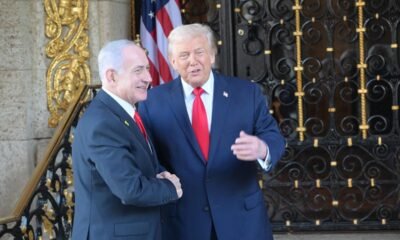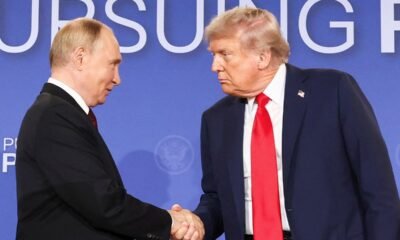INTERNACIONAL
Bondi defiant, says Abrego Garcia will stay in El Salvador ‘end of the story’
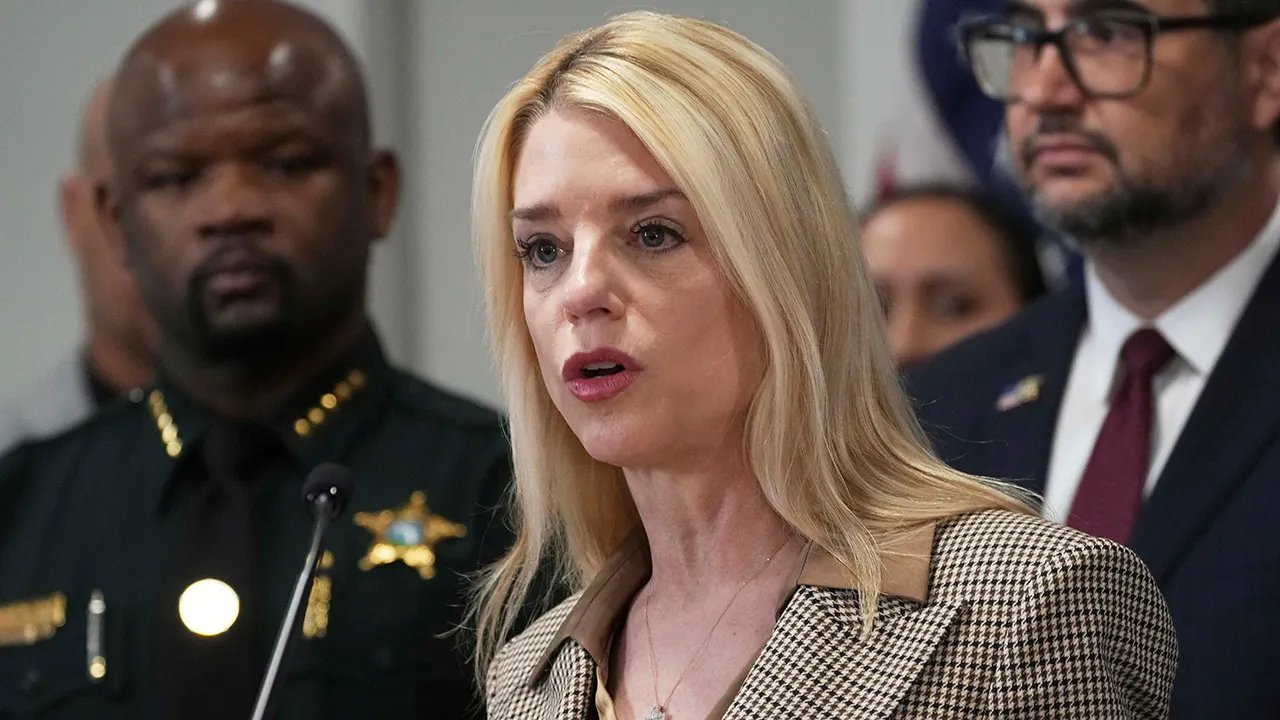
Attorney General Pam Bondi doubled down on the Trump administration’s claim that it’s «up to El Salvador» whether Kilmar Armando Abrego Garcia, an illegal immigrant in Maryland who was wrongfully deported last month, can return to the U.S.
Speaking to reporters at a press briefing on Wednesday, Bondi reiterated her earlier claim that it is up to El Salvadorian President Nayib Bukele whether his country opts to return Abrego Garcia to the U.S., even though officials acknowledged in court his deportation was an administrative error.
«He is not coming back to our country,» Bondi told Fox News on Wednesday, in response to a question about his legal status during the briefing.
Abrego Garcia is a Salvadorian national who had been living in Maryland before he was deported in March. Now, he is believed to be held in his home country’s sprawling, maximum-security prison. Both a federal court and the Supreme Court ordered the Trump administration to «facilitate» his release and return to the U.S. for proper deportation proceedings.
‘UP TO EL SALVADOR’: TRUMP ADMIN PUNTS ON RETURN OF WRONGFULLY DEPORTED MARYLAND RESIDENT
Attorney General Pam Bondi and Secretary of State Marco Rubio, center right, sit nearby as President Donald Trump meets with El Salvadorian President Nayib Bukele, left, in the Oval Office of the White House. (Win McNamee/Getty Images)
Bondi made clear Wednesday that they continue to see the issue as squarely in the purview of Bukele.
«President Bukele said he was not sending him back. That’s the end of the story,» she said. «If he wanted to send him back, we would give him a plane ride back. There was no situation, ever, where he was going to stay in this country. None.»
Her remarks come after the Supreme Court last week upheld a lower court’s order that requires the government to «facilitate» Abrego Garcia’s release from custody in El Salvador and to «ensure that his case is handled as it would have been had he not been improperly sent to El Salvador.»
On Tuesday, a federal judge in Maryland ordered Trump lawyers and plaintiffs to conduct an «intense,» expedited two-week discovery process into efforts made to facilitate Abrego Garcia’s return – including ordering top DHS and State Department officials to be deposed, under oath, in efforts to secure his return as the court weighs whether the Trump administration has been acting in good faith.
«Cancel vacations, cancel other appointments,» U.S. District Judge Paula Xinis told both parties Tuesday, clearing the way for what she said would be an extremely fast-paced timeframe.
«There will be no tolerance for gamesmanship or grandstanding,» she said of the process.
Bondi also emphasized that Abrego Garcia is not a U.S. citizen and had been living «illegally in our country from El Salvador.»
FEDERAL JUDGES IN NEW YORK AND TEXAS BLOCK TRUMP DEPORTATIONS AFTER SCOTUS RULING
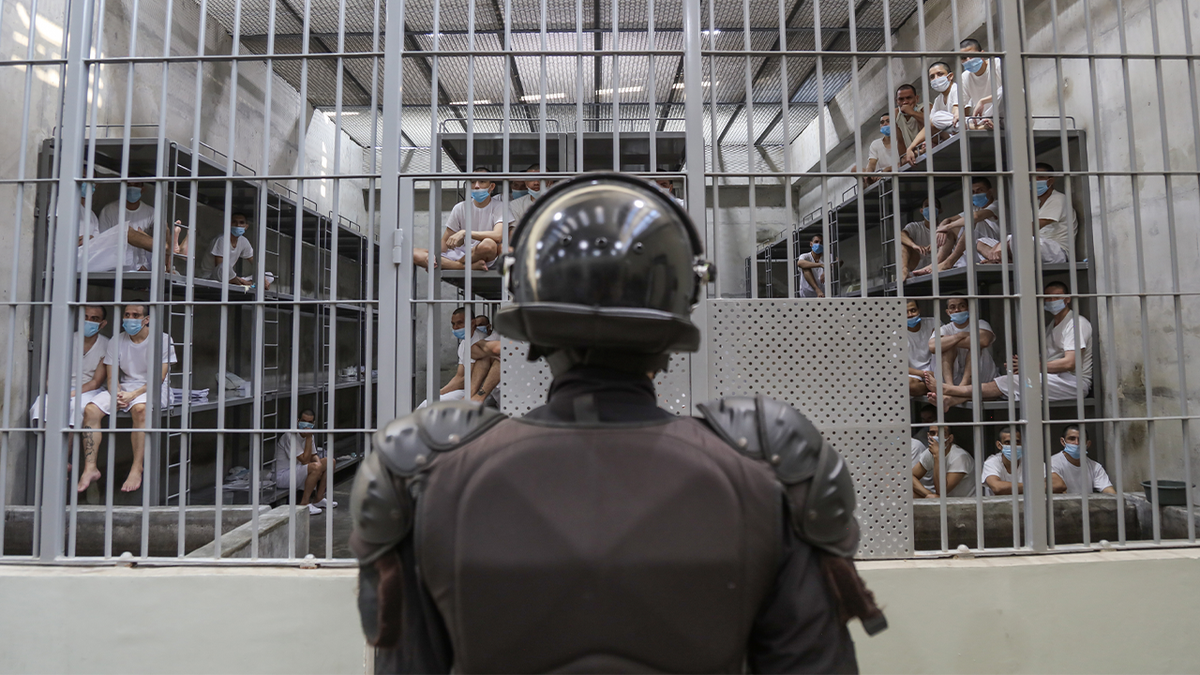
A prison officer guards a cell at the maximum security penitentiary Center for the Compulsory Housing of Terrorism on Apr. 4, 2025 in Tecoluca, San Vicente, El Salvador. (Alex Peña/Getty Images)
That is not in dispute. A U.S. court granted Abrego Garcia temporary protected status in 2019, finding he faced a «clear probability of future persecution» if returned, and that «El Salvadoran authorities were and would be unable or unwilling to protect him.»
Neither the Supreme Court ruling nor the lower court orders require Abrego Garcia to remain in the U.S. Rather, the courts have stressed that individuals slated for deportation must be granted certain due process protections under the U.S. Constitution, including habeas protections that allow them to challenge their removal in court.
It was not the first time this week that Trump officials have suggested that El Salvador should have the final say on Abrego Garcia’s status.
They also made this claim on Monday, when President Donald Trump hosted Bukele at the White House for a bilateral summit.
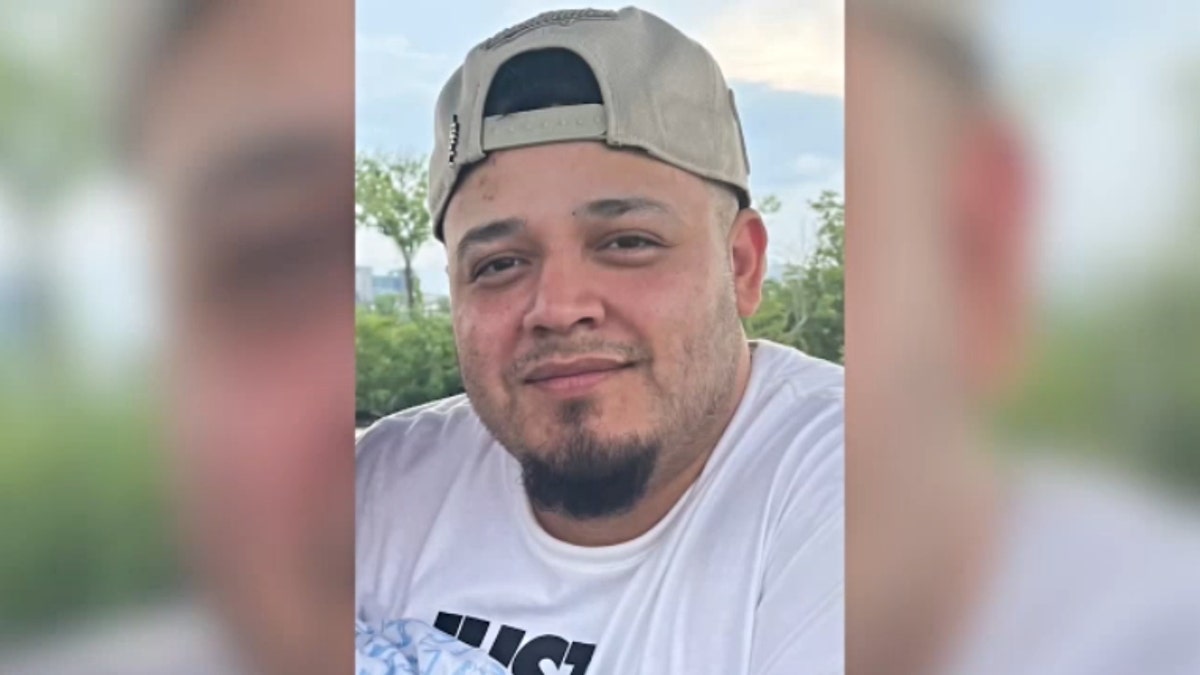
Kilmar Abrego Garcia was deported to an El Salvador prison last month. (Fox News)
When asked by reporters about Abrego Garcia, Bondi and other Cabinet officials said the matter was up to Bukele’s administration.
«That’s up to El Salvador if they want to return him. That’s not up to us,» Bondi said then. «The Supreme Court ruled precedent that if El Salvador wanted to return him,» she continued. «This is international matters, foreign affairs.»
Bondi added that «if they wanted to return him, we would facilitate it – meaning to provide a plane.»
El Salvador has received hundreds of migrants from the U.S., including more than 200 Venezuelan nationals abruptly removed in March under the 1798 Alien Enemies Act, and alleged members of the Salvadorian gang MS-13, under a $6 million deal struck with the U.S. earlier this year.
CLICK HERE TO GET THE FOX NEWS APP
White House Deputy Chief of Staff Stephen Miller doubled down on Bondi’s assertion, noting that Abrego Garcia is a Salvadorian national.
«It’s very arrogant, even for American media, to suggest that we would even tell El Salvador how to handle their own citizens as a starting point,» Miller told reporters, claiming that «two courts» had found Abrego Garcia to be a member of the MS-13 gang.
Donald Trump,Immigration,Justice Department,Trump’s First 100 Days,Politics
INTERNACIONAL
Panamá se alinea con reglas globales para regular la pesca del atún rojo
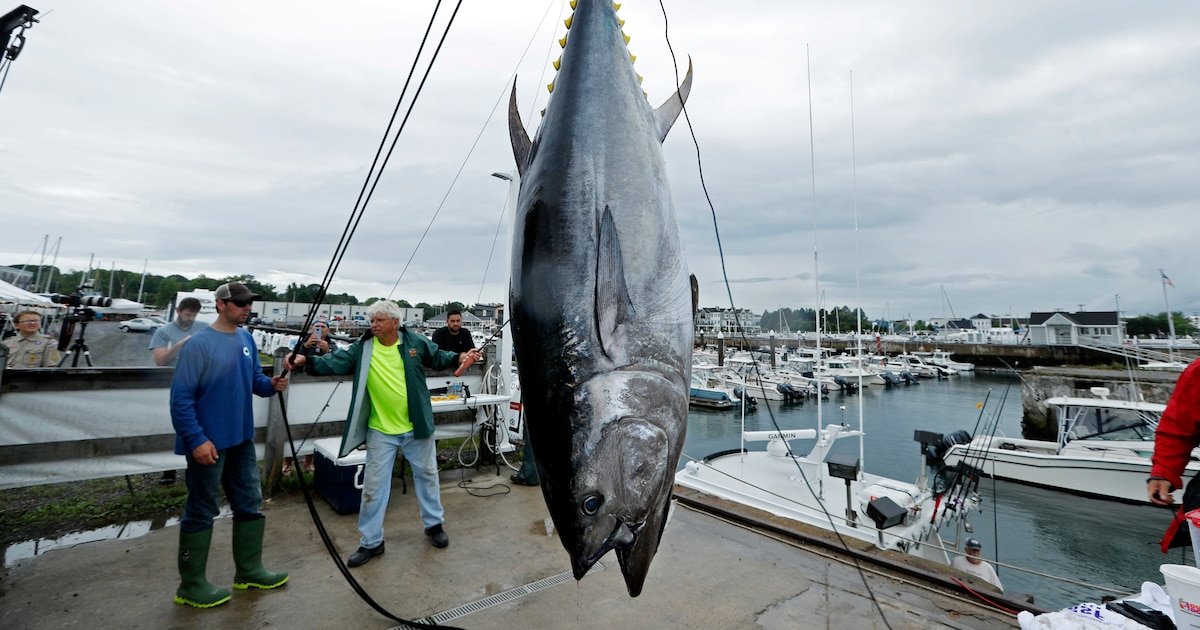
La Autoridad de los Recursos Acuáticos de Panamá (ARAP) aprobó una nueva resolución para regular la captura y comercialización del atún rojo del Atlántico Este y Mediterráneo, una de las especies más valiosas y presionadas del planeta, en un contexto marcado por la sobrepesca histórica, la alta demanda internacional y los esfuerzos globales por garantizar su sostenibilidad.
La medida fue oficializada mediante la Resolución ADM/ARAP No.006, publicada en la Gaceta Oficial del 10 de febrero de 2026, y se alinea con las recomendaciones de la Comisión Internacional para la Conservación del Atún Atlántico ICCAT.
La resolución establece que Panamá adoptará y aplicará de forma obligatoria las medidas de conservación y ordenación definidas por la ICCAT para el período 2026 y años subsiguientes, con el objetivo de garantizar el uso responsable del recurso.
El documento reconoce que el país forma parte del convenio internacional desde 1998 y, por tanto, está comprometido a cumplir con los acuerdos multilaterales sobre pesca sostenible.
Uno de los ejes centrales de la normativa es el control estricto de las cuotas de captura, los permisos de pesca y los registros de embarcaciones autorizadas.
La ARAP busca evitar que operadores sin licencia participen en la extracción del atún rojo, una especie cuya captura ilegal ha sido una de las principales causas de su deterioro poblacional durante las últimas décadas.
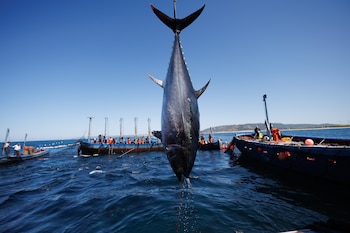
La resolución también regula el seguimiento satelital, los reportes obligatorios y la trazabilidad del producto desde el mar hasta su comercialización. Esto implica que las embarcaciones deberán reportar capturas, ubicaciones y volúmenes, mientras que las autoridades podrán auditar toda la cadena productiva, desde el desembarque hasta la exportación.
Otro aspecto clave es la prohibición de prácticas consideradas no selectivas o dañinas para los ecosistemas marinos. La normativa refuerza los controles sobre artes de pesca, temporadas permitidas y zonas restringidas, con el fin de reducir la captura incidental y proteger especies asociadas.
El atún rojo (Thunnus thynnus) es considerado uno de los peces más cotizados del mundo, especialmente en el mercado asiático. En países como Japón, China y Corea del Sur, su carne es altamente valorada para sushi y sashimi, alcanzando precios que pueden superar los miles de dólares por ejemplar en subastas especializadas.
Japón concentra históricamente más del 70% del consumo mundial de atún rojo, seguido por mercados de Europa —especialmente España, Italia y Francia— y Estados Unidos. Esta demanda ha generado una presión constante sobre las poblaciones naturales, incentivando tanto la pesca legal intensiva como la actividad ilegal.
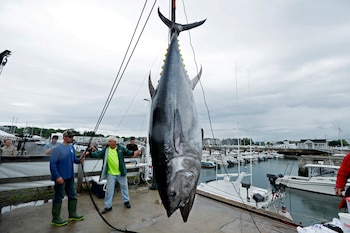
Durante los años noventa y principios de los 2000, el atún rojo del Atlántico estuvo al borde del colapso biológico. Estudios científicos alertaron que algunas poblaciones se habían reducido en más del 80%, producto de capturas excesivas, falta de controles y debilidad institucional en varios países pesqueros.
Ante ese escenario, la ICCAT impuso desde 2007 un régimen estricto de cuotas, vedas y fiscalización, que permitió una recuperación parcial de la especie. Informes recientes indican que las poblaciones del Atlántico Este y Mediterráneo muestran señales de estabilización, aunque siguen siendo vulnerables.
La resolución panameña busca precisamente evitar un retroceso en esos avances. Al adoptar formalmente las recomendaciones internacionales, el país se compromete a no exceder los límites de captura y a cooperar con los sistemas de monitoreo regionales.
Además de las normas de pesca, recientemente se publicó la normativa que incorpora el componente operativo de la participación panameña en esta pesquería bajo el esquema internacional de control. En ese marco, Panamá cuenta con una cuota anual de 55 toneladas de atún rojo del Atlántico (Thunnus thynnus), asignada dentro del sistema multilateral de reparto del Total Admisible de Captura.
Esta cuota debe ser utilizada exclusivamente por embarcaciones panameñas debidamente autorizadas y registradas, sujetas a los parámetros técnicos y administrativos establecidos para garantizar que las capturas se mantengan dentro de límites sostenibles y puedan ser verificadas por los mecanismos internacionales de control pesquero.
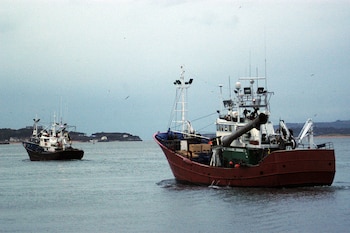
El documento también contempla que Panamá podrá transferir total o parcialmente su cuota a otros países contratantes, siempre que se notifique previamente a la Secretaría de la ICCAT y se cumplan las recomendaciones vigentes en materia de conservación. Esta opción introduce flexibilidad para países con menor capacidad de captura directa o sin flotas especializadas en esta especie.
La normativa advierte que cualquier captura que exceda el límite autorizado puede derivar en deducciones en asignaciones futuras, conforme a los criterios de cumplimiento aplicados por el organismo regional. Este mecanismo busca reforzar el acatamiento de las reglas y desincentivar prácticas que comprometan la recuperación del stock.
En paralelo, se refuerza que toda actividad vinculada a esta cuota debe estar respaldada por sistemas de control, documentación y certificación internacional, incluyendo permisos de captura, registros de desembarque y reportes periódicos, con el fin de garantizar la trazabilidad del producto.
Desde el punto de vista económico, la regulación también tiene implicaciones para exportadores y operadores logísticos. Panamá, como hub marítimo y comercial, participa indirectamente en la cadena del atún rojo a través del transporte, almacenamiento y reexportación, por lo que debe garantizar que los productos que circulan por su territorio cumplan con los estándares internacionales.
El documento establece mecanismos de inspección portuaria, verificación documental y cooperación con otras autoridades aduaneras y pesqueras. Esto busca cerrar espacios a la comercialización de pescado capturado de manera irregular o sin respaldo legal.
La presión sobre el atún rojo no solo proviene de la pesca industrial. El cambio climático, el aumento de la temperatura del mar y la alteración de las rutas migratorias también afectan su reproducción y supervivencia. Por ello, los e
En ese contexto, la ARAP señala que la resolución forma parte de una estrategia de responsabilidad internacional, que busca preservar los recursos marinos para futuras generaciones y fortalecer la imagen de Panamá como país comprometido con la sostenibilidad.
La normativa también contempla sanciones administrativas y penales para quienes incumplan las disposiciones, incluyendo multas, suspensión de licencias y decomiso de productos. Estas medidas buscan desincentivar prácticas ilegales y reforzar el cumplimiento efectivo de la regulación.
Para el sector pesquero, el nuevo marco implica mayores exigencias operativas, pero también ofrece mayor seguridad jurídica. Al alinearse con las reglas de la ICCAT, los operadores panameños evitan restricciones comerciales en mercados internacionales que penalizan el comercio de especies no certificadas.
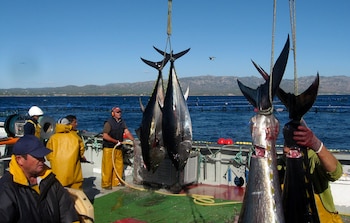
A nivel global, la producción mundial de atún rojo sigue siendo limitada en comparación con otras especies, precisamente por las restricciones vigentes. Esto mantiene los precios elevados y refuerza el interés económico en su explotación, lo que obliga a los gobiernos a mantener sistemas de control robustos.
Especialistas advierten que relajar las normas actuales podría provocar un nuevo ciclo de sobreexplotación, similar al ocurrido hace dos décadas. Por ello, organismos multilaterales insisten en la necesidad de mantener cuotas conservadoras y reforzar la cooperación internacional.
En Panamá, la adopción de estas medidas también responde a compromisos asumidos en tratados ambientales y comerciales, que exigen demostrar prácticas responsables en el uso de recursos naturales. El incumplimiento podría traducirse en restricciones comerciales o sanciones diplomáticas.
La resolución sobre el atún rojo se suma a otras normas recientes enfocadas en fortalecer la gobernanza pesquera, mejorar la trazabilidad y combatir la pesca ilegal, no declarada y no reglamentada, considerada una de las principales amenazas para los océanos.
almadraba,almadraba de barbate,almadraba de conil,almadraba de tarifa,almadraba de zahara,atún de alta calidad,atún de barbate,atún de cádiz,atún de temporada,atún del mediterráneo,atún en conserva,atún fresco,atún gourmet,atún premium,atún rojo,atún rojo de almadraba,atún rojo del atlántico,atún salvaje,atún salvaje de españa,captura artesanal,cocinar atún rojo,comercio de atún rojo,conservación del atún,delicias del mar,freshfish,gastronomía andaluza,lonja de atún,mariscosfrescos,método de almadraba,pesca sostenible,pesca tradicional,pescado azul,pescadocrudo,pescadoexquisito,pescadofresco,pescadonatural,rawfish,sashimi de atún,sashimilovers,sashimitime,seafoodlovers,sushi de atún rojo,sushiaddict,sushiart,sushiexperience,sushilovers,sushitime,tradición pesquera
INTERNACIONAL
Prosecutor who left Minnesota office amid anti-ICE unrest joins Don Lemon defense team
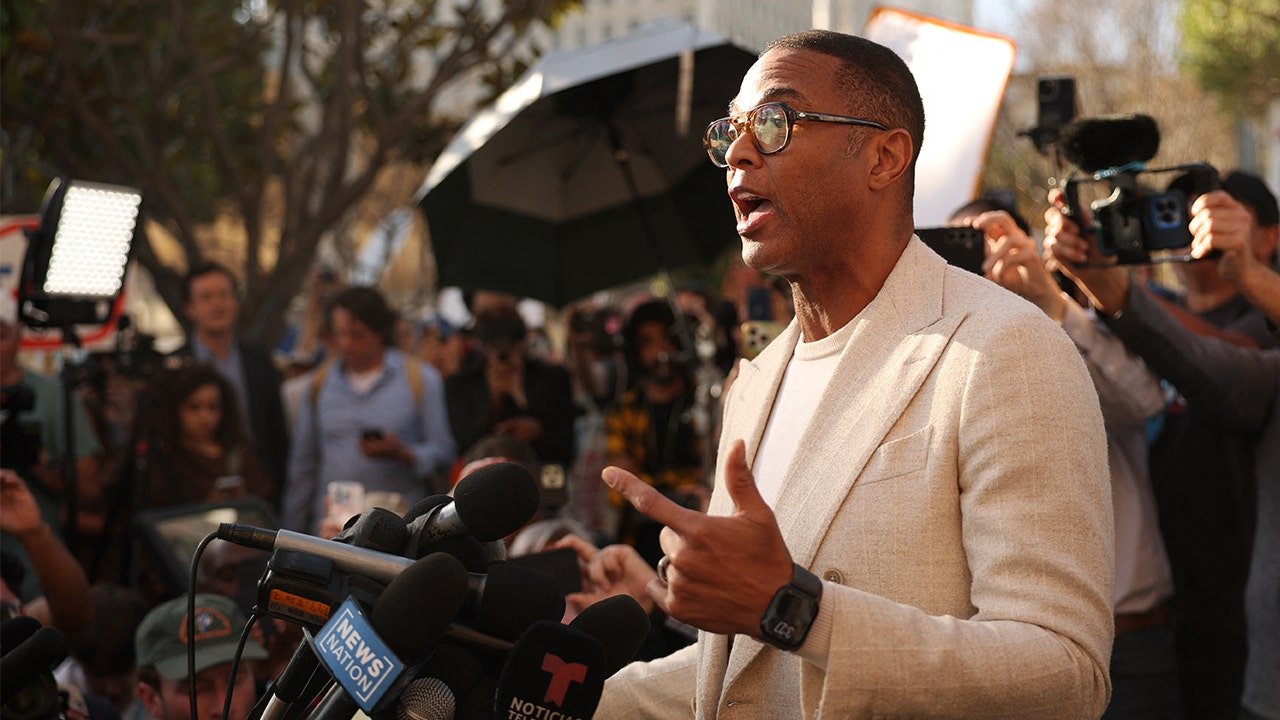
NEWYou can now listen to Fox News articles!
A longtime federal prosecutor who left the U.S. attorney’s office in Minnesota last month amid a wave of resignations linked to concerns over the Trump administration’s handling of anti-ICE agitators has joined former CNN anchor Don Lemon’s defense team, court filings show.
Joseph H. Thompson, a former senior leader in the Minnesota U.S. attorney’s office before he resigned, will now defend Lemon alongside Abbe Lowell, bringing firsthand experience from the same federal district prosecuting the case. Lowell is a well-known defense attorney who has sparred with the Trump administration in a number of high-profile cases in the past year alone, representing New York Attorney General Letitia James, Federal Reserve Board Governor Lisa Cook and former National Security Adviser John Bolton.
Lemon will fight these charges «vigorously and thoroughly» in court, Lowell told Fox News Digital last month.
According to a formal notice of appearance, Thompson will appear alongside Lemon in federal court Friday for an arraignment and initial court appearance in the Minnesota federal district.
DON LEMON TAPS HUNTER BIDEN’S ATTORNEY TO FIGHT TRUMP DOJ CHARGES
Pam Bondi, US attorney general, speaks during a news conference at the Department of Justice (DOJ) in Washington, DC, US, on Wednesday, Feb. 12, 2025. (Bloomberg via Getty Images)
Lemon, who describes himself as an independent journalist, was arrested last month for his alleged involvement in the storming of Cities Church in St. Paul, Minnesota, by anti-ICE agitators. Eight others were also arrested and charged in an event that Attorney General Pam Bondi described at the time as a «coordinated attack.»
«Make no mistake, under President Trump’s leadership and this administration, you have the right to worship freely and safely,» Bondi said in a video posted to social media. «And if I haven’t been clear already, if you violate that sacred right, we are coming after you.»
Thompson is one of roughly 14 federal prosecutors who resigned from the U.S. Attorney’s Office in Minnesota since January — a mass exodus many have attributed to the Justice Department’s handling of the unrest in Minnesota. He was one of five U.S. prosecutors who resigned from the office shortly after the fatal shooting of Renee Good and concerns over DOJ’s handling of the case.
«It was an honor and privilege to serve as an Assistant U.S. Attorney in both the District of Minnesota and Northern District of Illinois,» Thompson said on LinkedIn to announce his departure. He did not immediately respond to Fox News Digital’s request for comment on the news that he will represent Lemon.
Thompson previously spent 11 years at the U.S. Attorney’s Office for the District of Minnesota, including in key leadership roles. He served as the acting U.S. attorney for the district through October 2025 and headed up the fraud and public corruption section for the federal district.
MINNESOTA DRAGS TRUMP’S ICE TO COURT IN EFFORT TO PAUSE IMMIGRATION CRACKDOWN

Former CNN anchor and journalist Don Lemon speaks to the media after a hearing at the Edward R. Roybal Federal Courthouse in Los Angeles on January 30, 2026. The Trump administration charged Lemon with civil rights crimes over coverage of immigration protests. (AFP via Getty)
Lemon was charged with conspiracy to deprive the rights of others and a FACE Act violation related to his alleged involvement with the anti-ICE disruption at Cities Church.
The group was seen chanting «ICE out,» according to video footage, and interrupting a worship service.
Lemon was released without bail on Jan. 30. The FACE Act, passed in 1994, is a federal law that prohibits the use of force, intimidation, or obstruction to deliberately «injure, intimidate, or interfere» with an individual’s ability to exercise their right to religious freedom at a place of worship.
FACE Act violations carry penalties ranging from fines to prison time, depending on the severity of the violation alleged and other contributing factors.
Because the FACE Act classifies a first-time violation involving the use of force or physical obstruction as a misdemeanor, Lemon could face a maximum of one year in federal prison if prosecutors seek those charges.
Lowell has argued the case against Lemon is an «unprecedented attack» on the First Amendment, and an attempt by the Justice Department to chill free speech protections.

Protesters chant and bang on trash cans as they stand behind a makeshift barricade during a protest. (AP Photo/Adam Gray)
And Lemon, for his part, said he had been attending the demonstration in a reporting capacity.
In a video posted to his YouTube channel, Lemon remarked, «I’m just here photographing, I’m not part of the group … I’m a journalist.»
CLICK HERE TO GET THE FOX NEWS APP
«I went there to chronicle and document and record,» Lemon told Jimmy Kimmel in an interview last week, adding, «There is a difference between a protester and a journalist.»
Lowell echoed this claim. «Don has been a journalist for 30 years, and his constitutionally protected work in Minneapolis was no different than what he has always done.»
politics,donald trump,minnesota fraud exposed,immigration,federal courts,crime world
INTERNACIONAL
Trump meets Netanyahu, says he wants Iran deal but reminds Tehran of ‘Midnight Hammer’ operation
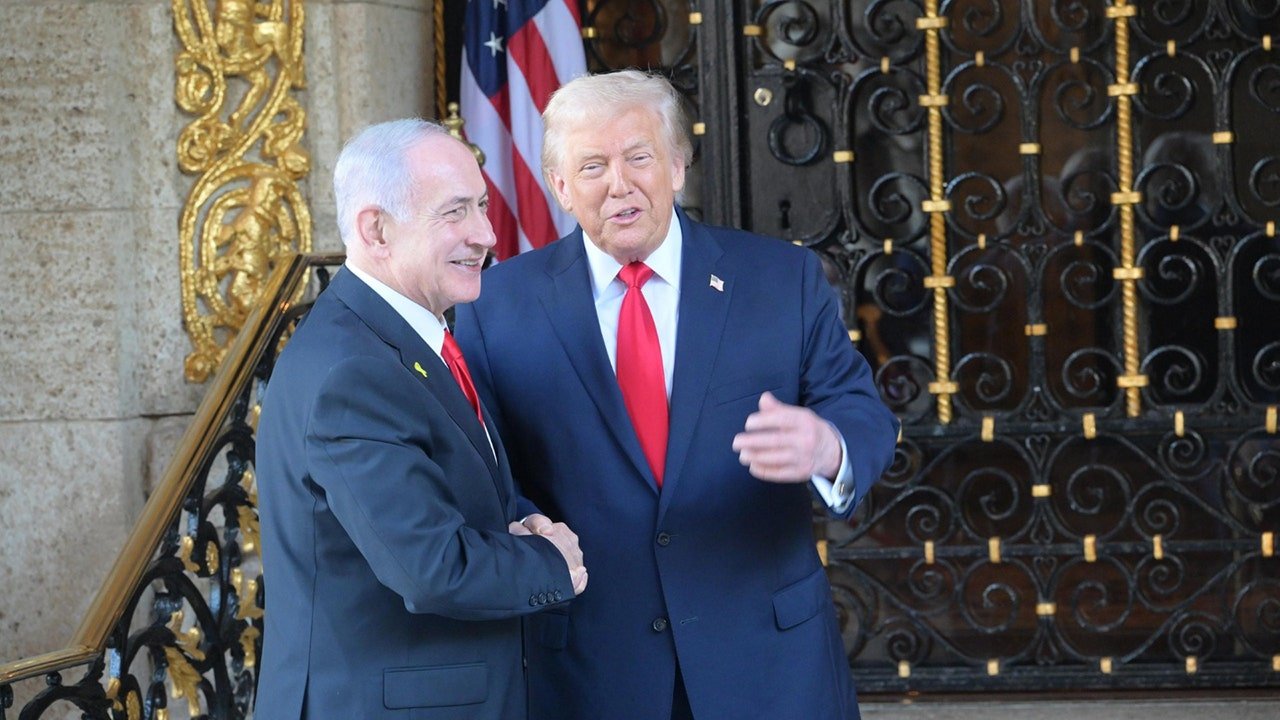
Trump, Netanyahu meet at White House amid Iran talks
Fox News’ Peter Doocy reports the latest on President Donald Trump’s meeting with Israeli Prime Minister Benjamin Netanyahu. Discussions cover Iran nuclear negotiations and the future ‘Board of Peace’ for Gaza.
NEWYou can now listen to Fox News articles!
Iran dominated the agenda in Wednesday’s White House meeting between President Donald Trump and Israeli Prime Minister Benjamin Netanyahu, with both leaders signaling that diplomacy with Tehran remains uncertain and that coordination will continue if talks fail.
In a post on Truth Social following the meeting, Trump said he pushed for continued negotiations but left open other options.
«There was nothing definitive reached other than I insisted that negotiations with Iran continue to see whether or not a deal can be consummated. If it can, I let the Prime Minister know that will be a preference. If it cannot, we will just have to see what the outcome will be… Last time Iran decided that they were better off not making a deal, and they were hit with Midnight Hammer — That did not work well for them.»
Netanyahu’s office said the leaders discussed Iran, Gaza and broader regional developments and agreed to maintain close coordination, adding that the prime minister emphasized Israel’s security needs in the context of negotiations.
FROM GAZA TO IRAN: WHAT’S AT STAKE IN TRUMP-NETANYAHU MAR-A-LAGO TALKS?
President Donald Trump and Prime Minister Benjamin Netanyahu meet at the White House, Feb 11, 2025. (Avi Ohayun/ GPO)
Earlier in the day, Netanyahu formally joined the U.S.-backed Board of Peace, signing onto the initiative ahead of the meeting after weeks of hesitation. The move places Israel inside a forum that includes Western partners as well as Turkey and Qatar, whose involvement in Gaza has drawn criticism in Jerusalem.
Experts say the decision reflects strategic calculations tied to both Gaza and Iran.
Dr. Dan Diker, president of the Jerusalem Center for Security and Foreign Affairs, said Netanyahu’s participation is directly linked to cooperation with Washington and to shaping postwar arrangements in Gaza.
«It is in Israel’s interest for Prime Minister Benjamin Netanyahu to join the Board of Peace. He needs a place at that table even alongside adversarial powers such as Muslim Brotherhood-aligned countries Qatar and Turkey. Netanyahu’s membership in the Board of Peace is an important element in his cooperation with President Trump to help implement the 20-point plan, with deradicalization, disarming Hamas and demilitarization as the first three non-negotiable actions.»
ISRAELI OFFICIALS REPORTEDLY WARN IRAN’S BALLISTIC MISSILES COULD TRIGGER SOLO MILITARY ACTION AGAINST TEHRAN

Secretary of State Marco Rubio and Israeli Prime Minister Benjamin Netanyahu hold a document after their meeting in Washington, on Feb. 11, 2026. (Avi Ohayon/GPO/Anadolu via Getty Images)
Diker said the decision is also tied to Iran. «More strategic reason that Netanyahu’s membership on the Board of Peace is important is that it represents an element of cooperation to counter the Iranian regime. Netanyahu is likely counting on action against the Iranian regime from the Iranian people themselves and from the United States in the coming weeks. In exchange, Netanyahu continues to cooperate in implementing the 20-point plan in Gaza as part of a quid pro quo.»
Blaise Misztal, vice president for policy at the Jewish Institute for National Security of America, described Israel’s move as a pragmatic choice shaped by the incomplete implementation of the Gaza deal and the broader regional threat environment.
«The implementation of the Gaza peace deal leaves much to be desired. Hamas, despite being given 72 hours to release all hostages, took over 100 days to do so; Hamas has still not disarmed; there is neither an International Stabilization Force nor any countries jumping at the chance to join it; and the Board of Peace comprises countries that have shown themselves enemies of peace with Israel.»
CLICK HERE TO DOWNLOAD THE FOX NEWS APP

President Donald Trump holds up his signature on the founding charter during a signing ceremony for the Board of Peace in Davos, Switzerland, on Jan. 22, 2026. (Chip Somodevilla/Getty Images)
He said Israel ultimately chose engagement over isolation. «Proceeding with the deal — including joining the Board of Peace — is Israel’s least bad option. Israel has a better chance of countering or balancing Turkish and Qatari influence on the Board of Peace by being in the room with them, rather than outside it.»
Misztal also linked the timing to Iran. «With the United States having a real chance to disarm, or even topple, the Iranian regime and the risk that Tehran might yet lash out at Israel, there is no interest in doing anything that would risk restarting the war in Gaza.»
iran,israel,middle east foreign policy,donald trump,benjamin netanyahu

 POLITICA2 días ago
POLITICA2 días agoAcuartelamiento policial en Santa Fe: reclamo salarial y temor a un conflicto nacional de seguridad

 POLITICA1 día ago
POLITICA1 día agoLa advertencia de ATE a los gobernadores que apoyan la reforma laboral: “Firmarán su sentencia de muerte”

 ECONOMIA1 día ago
ECONOMIA1 día agoCuánto le cuesta a la clase media llenar el changuito y cómo varían los precios de los alimentos entre provincias



